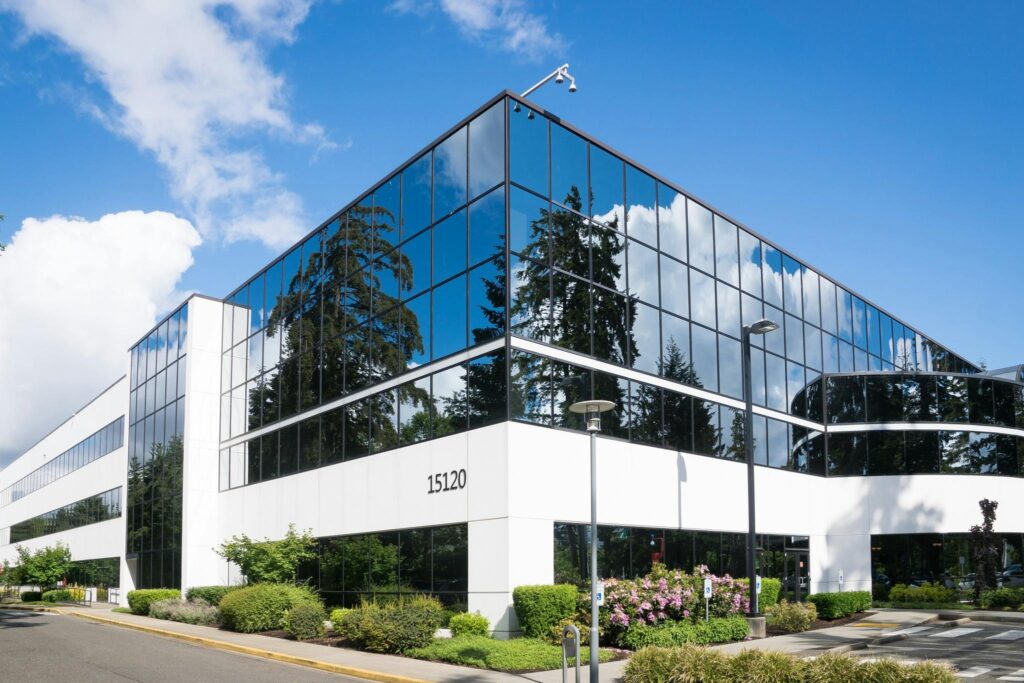As the demand for flexible office space grows across the UK, understanding regional cost differences can be incredibly beneficial for businesses looking to establish or expand their presence. While London has long held the title of the UK’s business hub, companies are increasingly considering alternatives in regional cities, where office rental costs are often significantly lower. Whether you’re a startup or a large corporation, knowing where to find cost-effective, flexible office spaces can make a big difference to your bottom line.
The Allure of London’s Office Market
London is undeniably one of the most dynamic cities in the world. The capital is home to major financial and business districts like Canary Wharf and the City, and it offers a vibrant ecosystem that supports businesses across industries. But with this prestige comes high prices. A recent report from Knight Frank reveals that office space in London costs an average of £100 to £125 per square foot in high-demand areas like Mayfair, making it one of the most expensive markets in Europe.
Many firms still choose London for its unparalleled networking opportunities, central location, and access to talent. However, the expense of maintaining an office in the city can be prohibitive, especially for smaller businesses. Flexible office spaces in London help alleviate some of this cost pressure by offering short-term, all-inclusive contracts, allowing businesses to avoid the high costs of long leases and traditional office expenses.
Regional Cities Rising: A Look at Manchester, Birmingham, and Beyond
To counter London’s high costs, businesses are increasingly exploring flexible office spaces in regional cities. Cities like Manchester, Birmingham, and Leeds have seen substantial investment in recent years, both in infrastructure and in the expansion of office space options. Flexible office providers like Regus, Spaces, and WeWork are now commonplace, helping fuel a robust market outside the capital.
In Manchester, office space costs around £35-£40 per square foot, less than half of what you’d pay for comparable spaces in London’s prime locations. Birmingham follows a similar trend, with central office spaces averaging between £30 and £35 per square foot. This pricing structure allows companies to secure larger spaces or better amenities for a fraction of London’s costs.
Key Benefits of Regional Flexible Office Space
Choosing a flexible office space in regional cities offers more than just cost savings. Here are some of the additional advantages:
- Access to Emerging Talent: Universities in cities like Manchester, Birmingham, and Edinburgh produce a wealth of skilled graduates, making these areas prime recruitment grounds for new talent.
- Lower Operating Costs: Not only are rents lower, but other expenses, from utilities to dining and amenities, tend to be more affordable outside London.
- Improved Work-Life Balance: Many employees enjoy the smaller commute times and lower costs of living in regional cities, boosting overall satisfaction and retention.
- Networking and Community: Regional cities are growing hubs for specific industries. Manchester, for example, has a strong media and technology sector, while Birmingham is known for its professional services.
Flexible Office Space: The Bridge Between London and the Regions
The trend of moving to flexible office space in regional cities doesn’t mean companies are abandoning London entirely. Instead, many businesses are adopting a hub-and-spoke model, where they maintain a smaller base in London and set up larger regional offices to accommodate their workforce. This hybrid approach allows them to capitalize on London’s networking advantages while also benefiting from the lower operational costs of regional cities.
With flexible office space, businesses can establish satellite offices or regional hubs on a temporary basis, giving them the agility to adapt to changing market conditions. For example, a company might use a coworking space in Birmingham for six months to test a new market before committing to a longer lease.
What the Future Holds for Flexible Office Space Across the UK
As remote and hybrid working models become the new norm, businesses are rethinking the necessity of a permanent, central office. The rise of flexible office space across the UK provides options for companies seeking agility and cost savings. According to a report from JLL, the flexible office market is expected to grow by 21% annually through 2025, with significant expansion in regional cities.
This shift will likely continue as technology enables seamless collaboration regardless of location. Cloud-based tools, virtual meeting platforms, and advanced cybersecurity measures have made it easier than ever for businesses to function effectively across multiple sites. In this context, the choice between London and regional cities becomes less about proximity and more about strategic fit.
Final Thoughts
The decision to choose office space in London or a regional city ultimately depends on a business’s goals, budget, and industry. London remains a world-class business center with unique advantages, but regional cities provide increasingly attractive options, particularly for companies seeking flexible office solutions.
Flexible office spaces have democratised the ability to work from prestigious addresses or dynamic cities without the burden of long-term leases. As the UK embraces more diverse ways of working, businesses have the opportunity to create a workplace strategy that’s both cost-effective and aligned with employee needs. Whether in the heart of London or a vibrant regional hub, the flexibility to choose means a stronger, more adaptive business environment across the UK.


